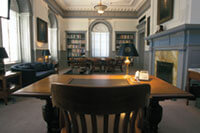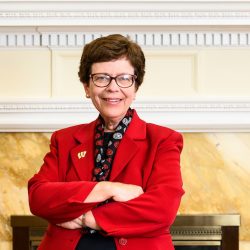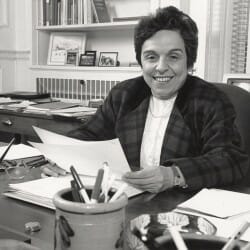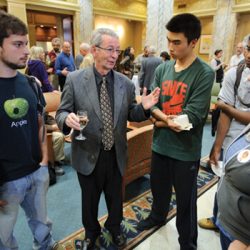What does it take to succeed as the head of a major public research university?

As leaders of American universities tackle their complex jobs, average tenure is shrinking. Photo: Jeff Miller.
Former UW–Madison Chancellor Donna Shalala recently told the New York Times that the job is like that of a tugboat captain: you try to get the ship aligned and pull it in the right direction.
“It was a lot easier to run a cabinet department than the University of Wisconsin,” says Shalala, who left the UW to become secretary of the U.S. Department of Health and Human Services and now serves as president of the University of Miami. “There are a lot of different constituencies at a university, and the president cannot be successful without buy-in from all of them.”
The quest for such a person for UW–Madison will begin this fall when UW System President Kevin Reilly appoints a search committee that represents those constituencies — faculty, staff, students, and the broader community. The goal is naming someone to succeed Interim Chancellor David Ward MS’62, PhD’63 when his two-year appointment ends next summer.
The average tenure nationally for college and university presidents is seven and a half years, a year shorter than it was six years ago. It’s a complex job. The UW’s new chancellor must have the skills to run an enterprise the size of a major corporation — a 936-acre campus, more than 42,000 students, some 15,000 faculty and staff, and a $2.7 billion annual budget.
It’s possible that the candidate ultimately approved by the UW System Board of Regents will come from outside higher education. Purdue University recently hired Indiana Governor Mitch Daniels as its next president, sparking complaints about choosing someone without an academic background to lead a major research university. But nearly one-third of college presidents and chancellors have not served as faculty members, instead having built careers in politics or business, according to a survey from the American Council on Education.
Finding the UW’s next leader will be a public process, with finalists visiting campus to participate in forums and conversations aimed at answering the most critical question among many: who is the best captain to lead our university into the future?
Published in the Fall 2012 issue



Comments
No comments posted yet.